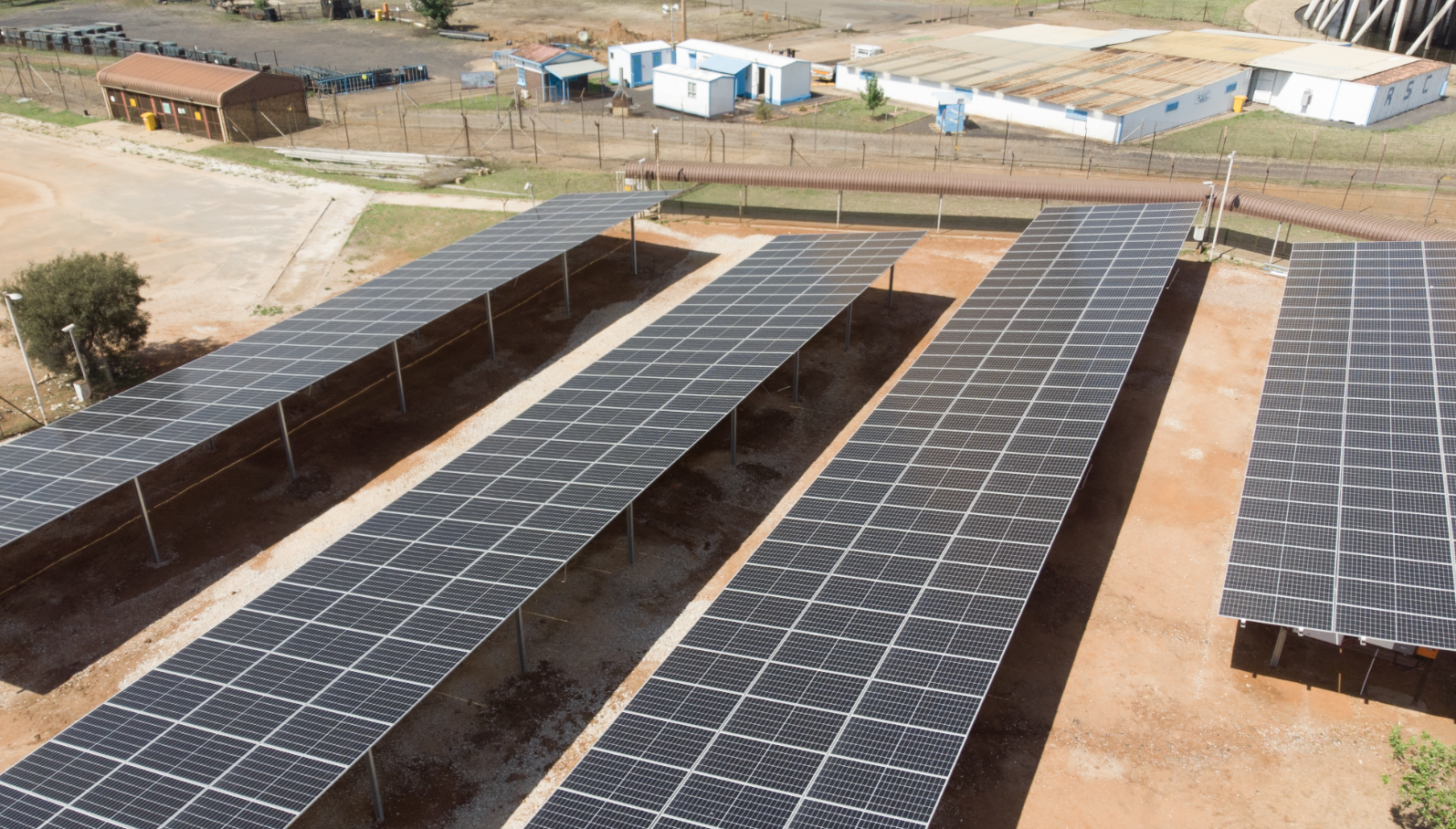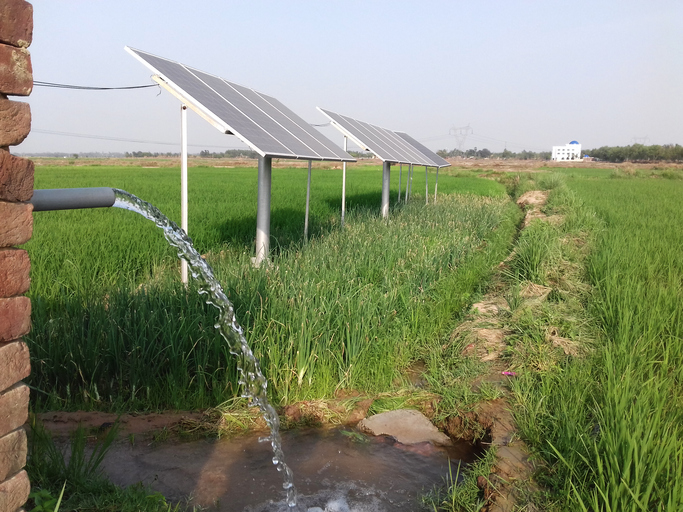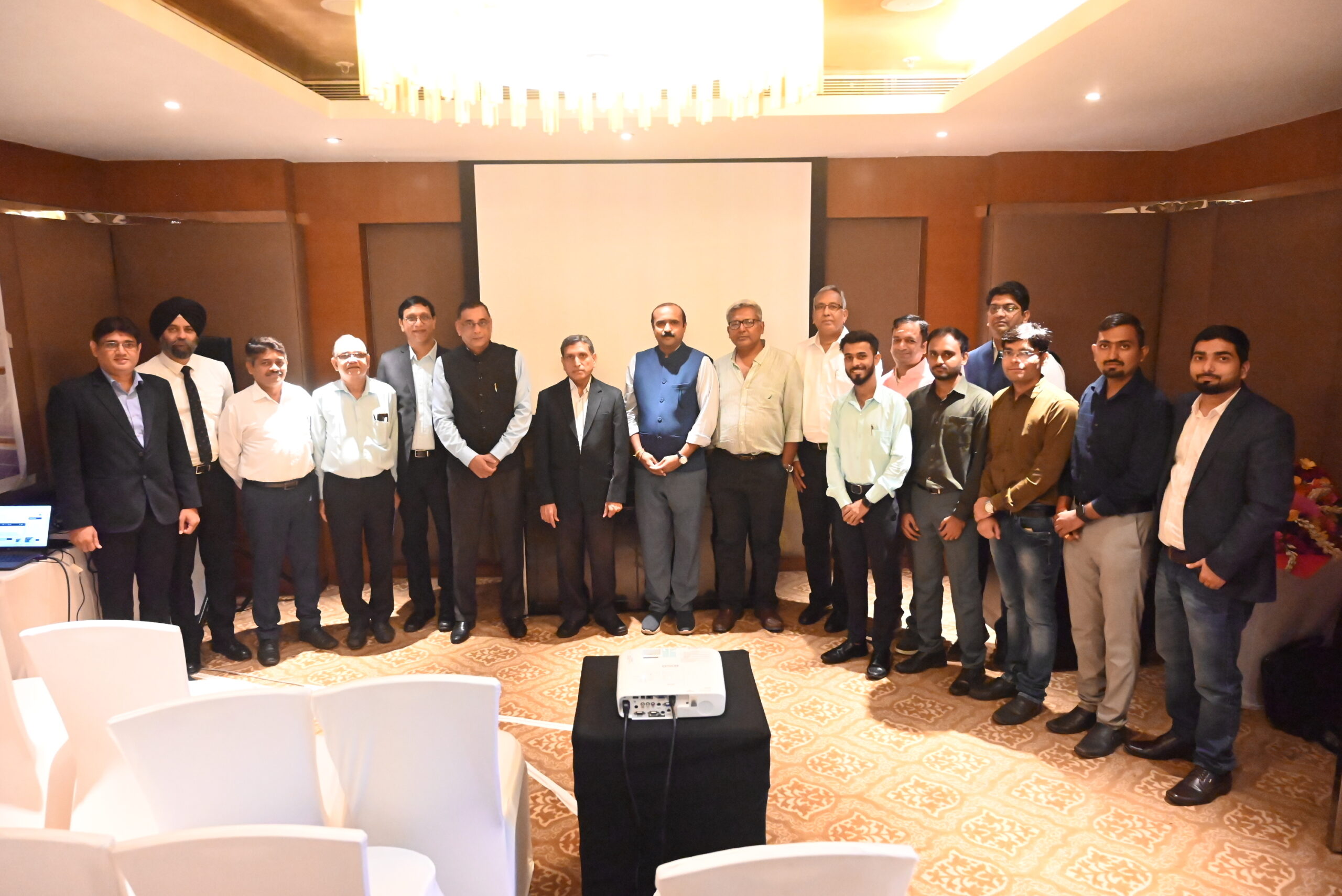DREAM Initiative Builds First Solar Mini-grid Powered Large Scale Irrigation System to Power Agriculture in Africa

ETHIOPIA | October 11, 2022 – The Distributed Renewable Energy – Agriculture Modalities (DREAM) initiative will build the first solar mini-grid powered large scale irrigation systems in Africa, providing famers with reliable, affordable, and sustainable irrigation. Today, the initiative begins with the launch of nine renewable energy mini-grids and irrigation systems across Ethiopia.
Partners involved in the project include Ethiopia’s Ministry of Water and Energy, Ministry of Irrigation and Lowlands (MILLs), Ministry of Agriculture (MoA), Agriculture Transformation Institute (ATI), Global Energy Alliance for People and Planet (GEAPP), The World Bank, European Investment Bank and African Development Bank – Sustainable Energy Fund for Africa.
H.E. Ing. Dr. Habtamu Itefa, Minister, Ministry of Water and Energy states: “We are delighted to launch the DREAM initiative, which is supporting the deployment of solar mini-grids that will provide reliable and affordable electricity to power irrigation for farmers and local communities. Over the life of the program, 200 mini-grids will provide new or improved access to electricity to over 290,000 people, create or improve more than 60,000 jobs, while displacing up to 200,000 tons of greenhouse gas emissions by 2030.”
H.E. Eng Ayisha Mohammed Musa, Minister of Irrigation and Lowlands states: “The DREAM project has the notable potential to contribute to the vision and mandate of the Ministry of Irrigation and Lowlands, which is to irrigate 2 million hectares by 2030. As part of its National Irrigation Strategy (NIS), the ministry plans to leverage the use of Distributed Renewable Energy (DRE) to achieve national food security and food sovereignty through the expansion of commercially viable, environmentally friendly, climate resilient, and technologically advanced irrigation schemes and the implementation of integrated development in lowland areas.”
Agriculture is the heart of Ethiopia’s economy, accounting for 32% of GDP and 70% of the labor market. However just 5% of land is irrigated and crop yield from small farms are below regional averages. Those who have access to electricity often rely on polluting, unreliable and costly diesel-powered generators. With the prices of diesel having increased by 20% in the last year and food inflation having increased by 42% in February 2022, the country is battling with significant inflation. This is putting increased pressure on the industry, and livelihoods.
H.E Omer Hussein, Minister of Agriculture noted: “With low level of irrigated agriculture in the country, such kinds of initiative as DREAM project which adopts renewal energy using solar mini-grids, will help to increase modern irrigation practices. As part of its mandates to collaborate with line ministries and other partners to advance agricultural transformation thereby contribute to the realization of vision 2030 i.e. to have a transformed agriculture, the MoA is committed to support the successful implementation of this pilot project including its scale-up phase in future”.
Dr. Yifru Tafese, Deputy Director General, ATI: “The launch of the DREAM project today is the beginning of a great journey bridging off-grid renewable energy and irrigated agriculture. It will not only contribute to increasing sustainable agricultural production and growing smallholder farmer incomes in the horticultural Agriculture Commercial Clusters, but also paves the way for broader rural transformation. Hence, the collaboration of all stakeholders becomes critical to ensuring the successful execution of this pilot, and to preparing the ground for successful scale-up”.
The majority of rural Ethiopians depend on farming for their livelihoods, and climate change is making farming in the country, and across Africa, more unpredictable. DREAM will support agricultural communities and provide opportunities for farmers and local businesses to grow and thrive.
João Duarte Cunha, Manager of the Renewable Energy Funds Division in charge of SEFA and African Development Bank spokesperson, states, “The lack of clean, affordable and reliable electricity is a major operational constraint to Ethiopian agricultural businesses, a sector that is both central to rural livelihoods and increasingly vulnerable to climate change. Conversely, energy access business models often lack a commercial client base to ensure financial sustainability. We are glad to partner with the Government of Ethiopia, the Global Energy Alliance for People and Planet and other project stakeholders in the innovative DREAM program, a first-of-a-kind business model pilot for Africa’s mini-grid industry pilot. We thus look forward to piloting this integrated energy-agriculture model and eventually take it to scale across other parts of Africa.”
The DREAM project will provide reliable and affordable solar mini-grid power and irrigation systems that will pump water more efficiently than diesel pumps, increasing crop yields, incomes, and food security. The initiative expects farmer incomes to increase from 50% – 300% depending on the site.
Joseph Nganga, Vice President for GEAPP states: “We are thrilled to be supporting the Government of Ethiopia on their plans to increase the pace and scale of providing clean, reliable energy to those who need it, while reducing emissions and improving livelihoods.”
Over the next ten years, GEAPP partners will support the Government of Ethiopia to connect up to 20 million people with reliable and renewable electricity via economic development projects across rural Ethiopia that facilitate investments into productive use of energy.
DREAM partners
- Ministry of Water and Energy
- Ministry of Irrigation and Lowlands
- Ministry of Agriculture
- Global Energy Alliance for People and Planet
- The World Bank
- European Investment Bank
- African Development Bank – Sustainable Energy Fund for Africa
- Agriculture Transformation Institute (ATI)
- Veritas Consulting
- SNV
- Keller-Bliesner Engineering
- Duke University
About Ministry of Irrigation and Lowlands
The Ministry of Irrigation and Lowlands (MILLs) was established under the new government structure of Ethiopia. The ministry is mandated to develop irrigation infrastructure and integrated lowland development throughout the country by bridging the gap that exists between energy infrastructure, and agricultural productivity through the development of environmentally friendly, climate resilient and technologically advanced irrigation schemes. In Ethiopia, only 5 percent of potentially irrigable land is irrigated and crop yields from rainfed smallholder farms are below global averages, at only 30% of expected yield. In addition to increased crop production yield, access to irrigation enables farmers to diversify crop production, thereby enhancing their climate resilience. Currently, in areas where irrigation is practiced, energy is generated from emission-generating and foreign currency intensive diesel generators, since large tracts of the rural population do not have access to the electrical grid. The development of Distributed Renewable Energy (DRE) based irrigation schemes is expected to deliver climate resilient, sustainable, and economically viable food production in the country. In the lowland areas of the country, the MILLs plans to implement Integrated Sustainable Development (ISD) leveraging innovative irrigation schemes to provide feedstock for the livestock while substantially increasing medium to large-scale farm production in the country. In addition to achieving high yield and sustainable largescale farming, DRE enabled Integrated Sustainable Development has the potential to transform the economic potential of lowland areas by providing access to electricity and climate-resilient drinking water to the community.
About the Global Energy Alliance for People and Planet
The Global Energy Alliance for People and Planet (GEAPP) is alliance of local entrepreneurs, governments in emerging and developed economies, and technology, policy, and financing partners. Our common mission is to support developing countries’ shift to a clean energy, pro-growth model that ensures universal energy access and unlocks a new era of inclusive economic growth, while enabling the global community to meet critical climate goals during the next decade. In doing so, as an Alliance we aim to enable 150 million new jobs, reduce 4 gigatons of future carbon emissions, and expand clean energy access to one billion people. With philanthropic partners, Bezos Earth Fund, IKEA Foundation, and The Rockefeller Foundation, GEAPP works to build the enabling environment, capacity, and market conditions for private sector solutions, catalyze new business models through innovation and entrepreneurship, and deploy high-risk capital to encourage private sector solutions, and assist just transition solutions. For more information, please visit www.energyalliance.org and follow us on Twitter at @EnergyAlliance.
About African Development Bank
The African Development Bank Group is Africa’s premier development finance institution. It comprises three distinct entities: the African Development Bank (AfDB), the African Development Fund (ADF) and the Nigeria Trust Fund (NTF). On the ground in 41 African countries with an external office in Japan, the Bank contributes to the economic development and the social progress of its 54 regional member states. For more information: www.afdb.org.
About Ministry of Agriculture
The Ministry of Agriculture (MoA) is one of the Federal Government’s Ministries responsible to formulate policies, strategies programs and legal framework, and implementations of same to ensure the sustainability of agriculture and forest development and its competitiveness in Ethiopia. The MoA is mandated to create enabling environment for the sector, and support private sectors, cooperatives and other to invest in the sector. It leads and coordinates the design and implementation of the sector’s national plan and regulates the sector. The MoA designs, in collaboration with Ministry of Irrigation and Lowland, a system for utilization of water and land for the growth of production and productivity of crops and livestock to be used for agricultural activities in lowland areas based on research findings and follow up its implementation. The Ministry envisions to have a transformed agriculture by 2030. In order to realize its vision, the MoA has developed a 10-year agricultural development roadmap and has revised sectoral policies and strategies that guide the implementation of its plan. The MoA is organized with four sub-sectors in order to implement its core functions. These include Agricultural Development, Livestock Resources Development, Natural Resource and Food Security, and Agricultural Inputs and Markets sub-sectors. Moreover, there are nine accountable institutions that support the implementation of the ministry’s mandates. For further information, please check with the ministry’s website on http://moa.gov.et.
About Agricultural Transformation Institute
The Ethiopian Agricultural Transformation Institute (ATI), accountable to the Ministry of Agriculture is mandated to identify systemic constraints of agricultural development and conduct studies and recommend solutions in order to ensure sustainability and structural transformation; to provide implementation support; to manage and lead projects; to support the establishment of strong linkages among agricultural and related institutions and projects in order to ensure the effectiveness of agricultural development activities. The ATI is a delivery-oriented organization that adopts unique approaches and operating models to discharge its mandates. The ATI operates as a system integrator with diverse set of stakeholders to create synergies and bring about transformative deliverables. It has developed its 10-year plan in order to drive agricultural transformation thereby contributing to the realization of a transformed agriculture by 2030. Since its establishment, ATI has made significant contributions to the agriculture sector, positively impacting Ethiopia in the past 10 years. The ATI has implemented about 48 innovative and large-scale strategic projects in the areas of soils, irrigation, mechanization, value chains, seeds, access to markets and rural finance to smallholder farmers; and conducted over 250 action oriented strategic studies. Under its flagship program, the Agricultural Commercialization Cluster (ACC), the ATI is currently implementing 15 projects including DREAM project. The ATI has four regional centers that coordinate and lead implementations of its plan in collaboration with regional partners. Please visit our website for further information: www.ata.gov.et.
About Sustainable Energy Fund for Africa
SEFA is a multi-donor special fund that aims to unlock private sector investments that contribute to providing universal access to affordable, reliable, sustainable, and modern energy services for all in Africa, in line with the Bank’s New Deal on Energy for Africa strategy and Sustainable Development Goal 7. For more information: www.afdb.org/sefa.
Media contact
Eric Phillip Gay
Global Energy Alliance for People and Planet
eric.gay@energyalliance.org
+1 917 912 6190


